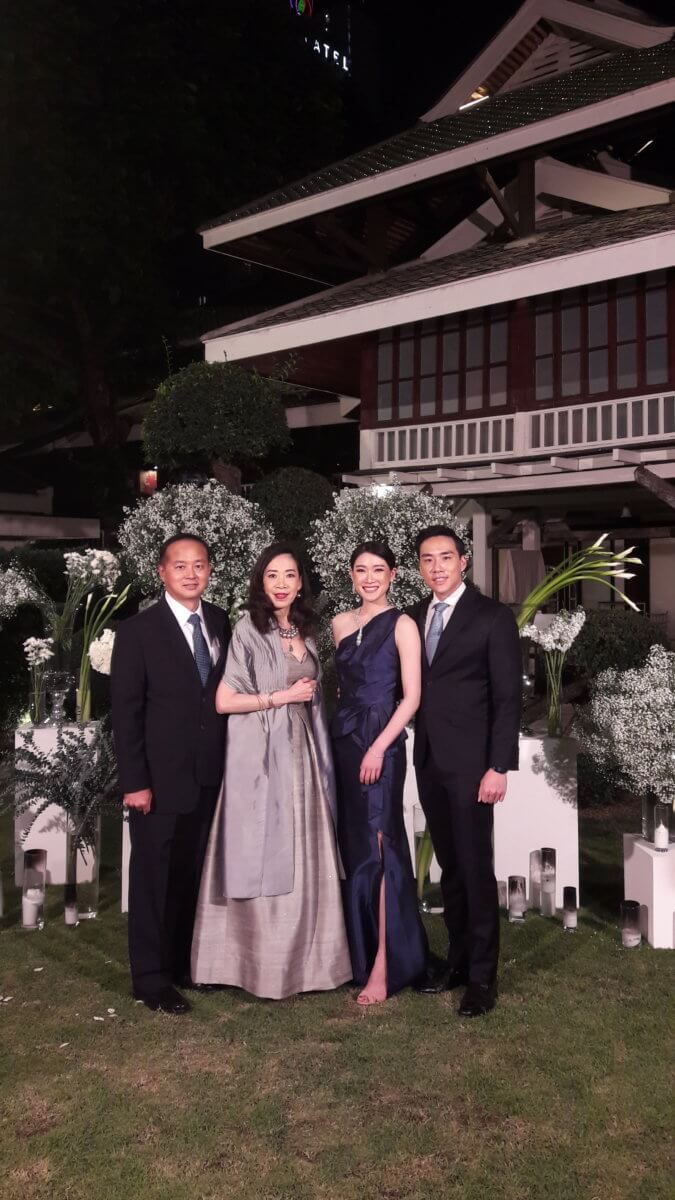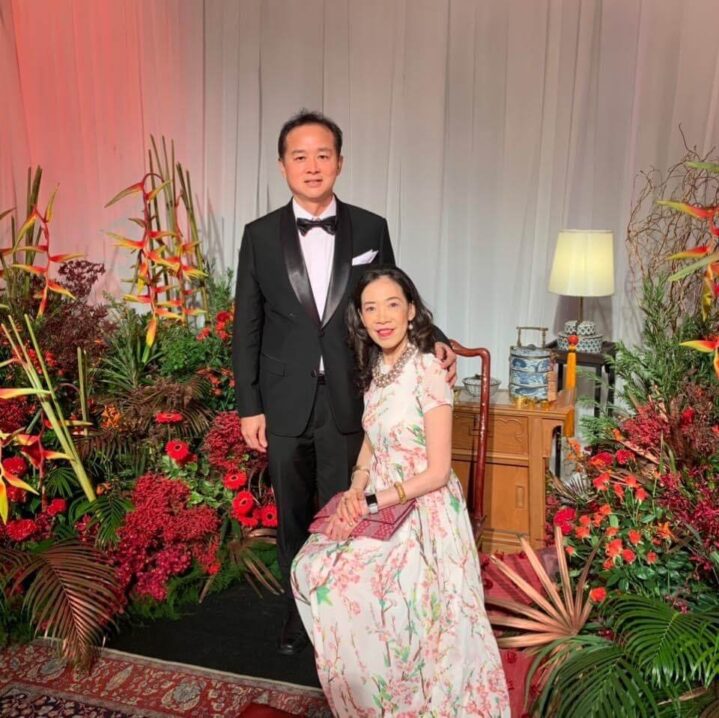
Alien wives: Tips to survive cultural shock for “brides from abroad”
After I officially married and moved to Thailand in June 1991, I recall my first impression upon arrival to Bangkok. Noticing the immigration channel for non-Thai that I had to take, I vividly remembered it said “Aliens”. Then, I thought about my new status, “an Alien wife?” Many “brides from abroad” who are foreigners marrying Thai husbands have carved out admirable and fulfilling lives here. Let us find out from them how they survived the cultural shock and learn some tips to finally call Thailand home.
Wynna Metharom (Hong Kong)
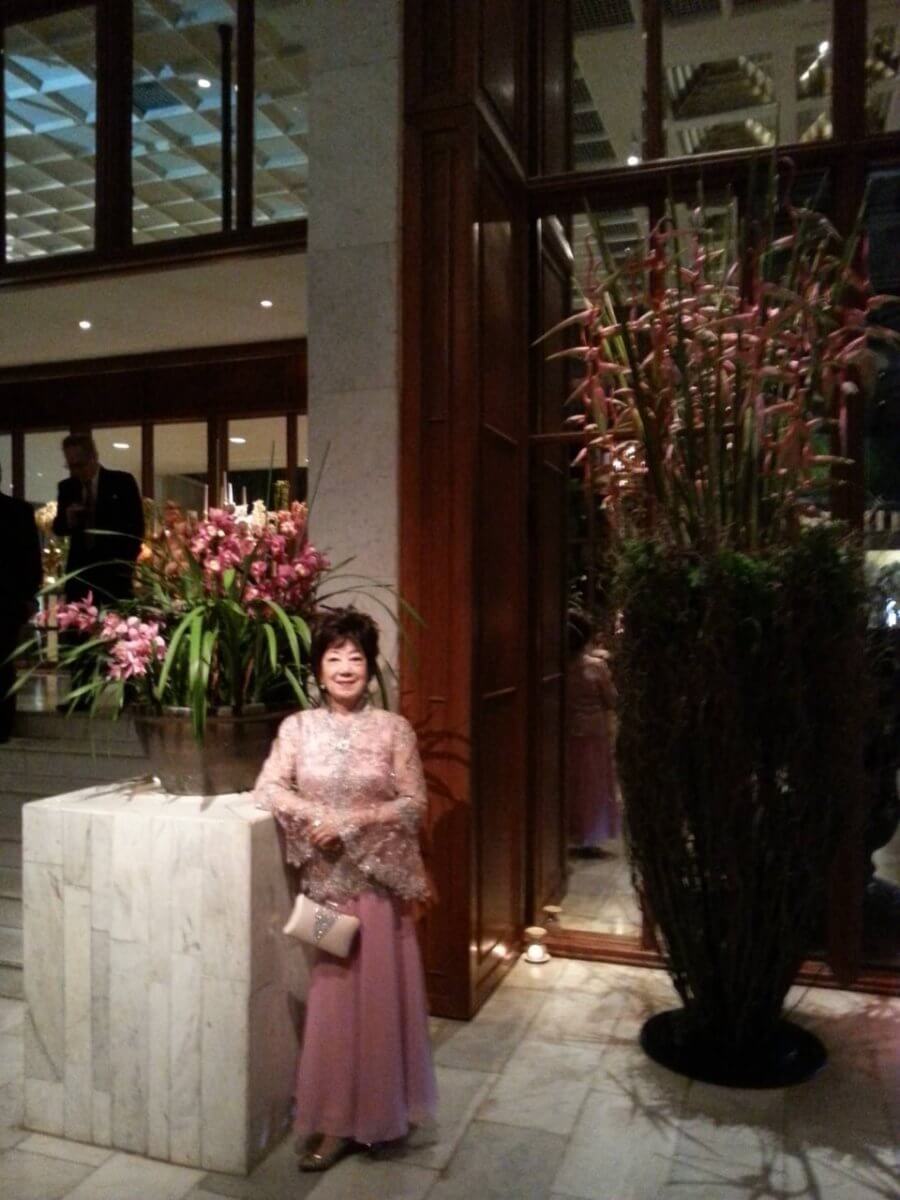
Wynna comes from Hong Kong and has married to her Thai husband, Manu Metharom for 51 years. In 1962, she met her husband while studying university in the United States. She happily recalled, “My wedding was officiated by the pastor in the school hall, and he proudly announced that my brothers and uncle were also graduates in the same university.” She described that it was not easy when she first settled in Bangkok. Quoting an example, “There are many things that I am not used to, in particular Thai food. I found it too sweet, sour and spicy. There were no hotels or good quality restaurants available at that time. Every time I went to the hairdresser, I had to bring a member of the house staff to accompany me as an interpreter.”
Despite living earlier in a buried reinforced household environment, Wynna shared that she was always been treated well by her husband’s family. She kept an active social life throughout the years, and built long established friendships with her participation in the Kwong Siew Association of Thailand. She proudly shared, “I have one daughter and two sons. They were all born in the United States. I am now blessed with six beautiful grandchildren.”
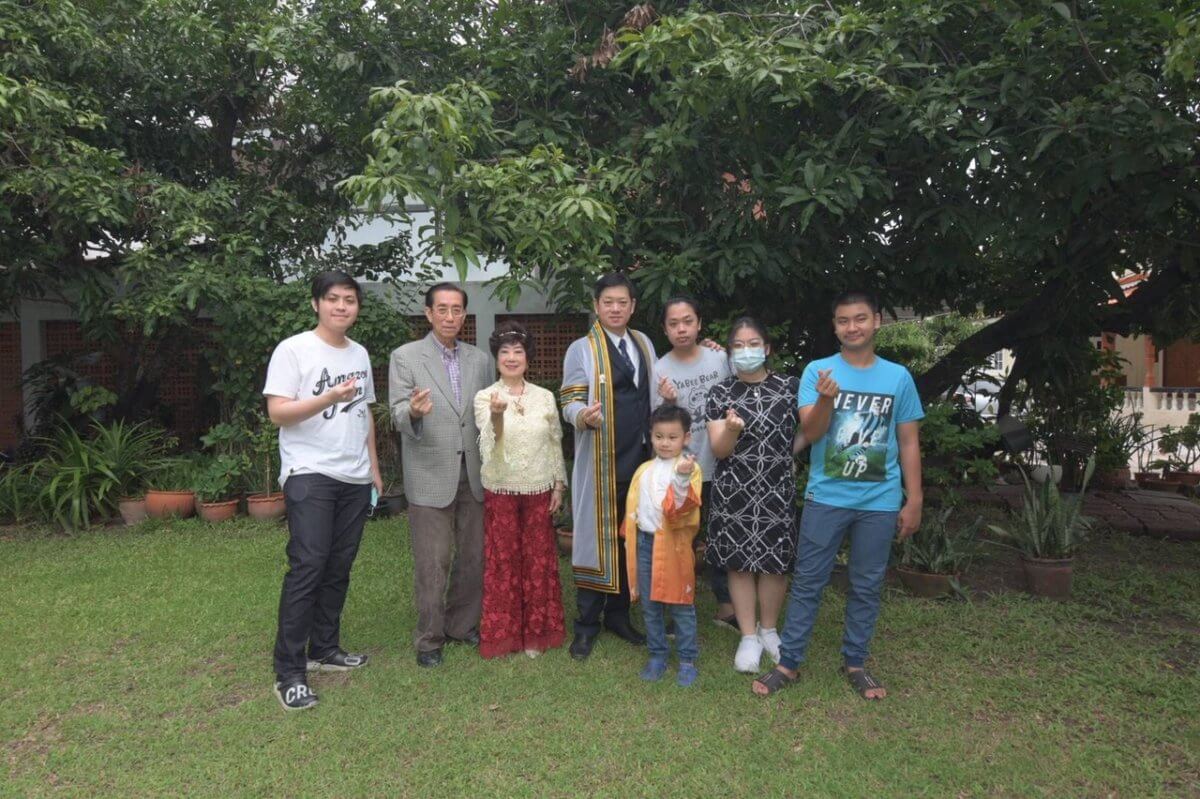
Rita K. Hingorani Indhewat (India)
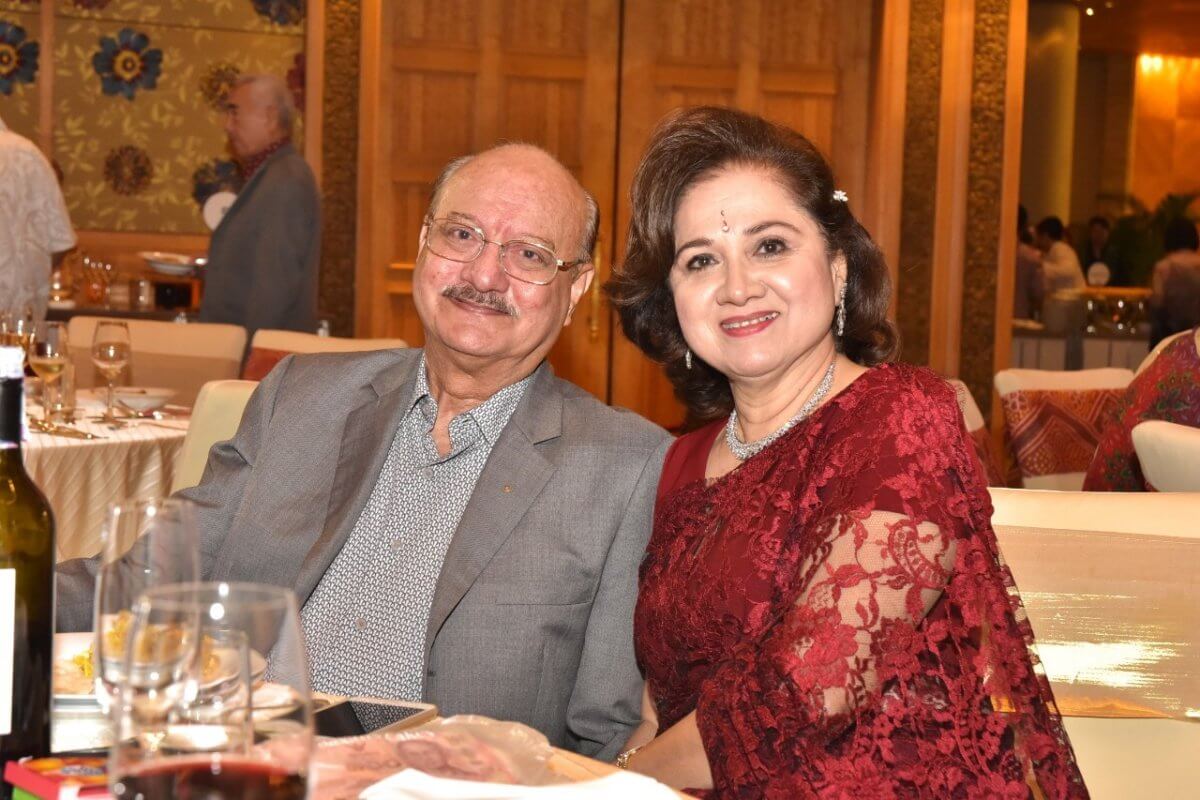
Rita recalled that having spent most of her early life in Ghana, West Africa, coming to live in Bangkok, Thailand posed its challenges at first. “I met my husband, Krit, a Thai national now, at a wedding in India and we clicked off very well. A year later we were married and I ended up in this amazing country known as the “Land of angels” and Venice of the East as it was known at that time with its numerous canals. The canals have turned into roads these days!” She explained further, “One of my first impressions in Thailand was the Thai language which has many high to low tones and sounded so musical to my ears that it made me want to learn how to speak Thai as soon as possible. I attended Thai classes at AUA. I joined the family business of Fashion Fabrics and had the opportunity to practice my Thai, as our customers were celebrities and members of the elite including the Royal Family. H.M. the late Queen Rambhai Barni and H.R.H. Princess Soamsawali personally visited our House of Fashion Fabrics – “Royal Taj Mahal” at Rajaprasong at that time.”
Recording other great impressions of Thailand, “It has to be the beautiful temples all over the kingdom. To understand the Buddhist way of life was not new to me, in fact I respected it and its many cultural aspects. The only cultural shock to me was “Thai kickboxing – Muay Thai”. I often wondered, “Why do they have to kick as well!” When I came here over 50 years ago, most of the sois (lanes) on Sukhumvit Road had names and soi numbers were not necessary on addresses. For instance I lived in Soi Phasuk, which is now Soi 2.”
Rita has some genuine advice to future brides, who are coming to live in Thailand. “First, try to understand the Thai people who are very polite and humble and secondly, get accustomed to the hot and humid weather! Of course learning the Thai language is very essential otherwise moving from A to B is next to impossible!” She cheerfully declared, “Now I regard Thailand as my home as I have lived here happily for 51 years with my husband, Krit, my son Naresh, my daughter Roshini and my son-in–law Jackiy Ramani, and have three wonderful grandchildren.”
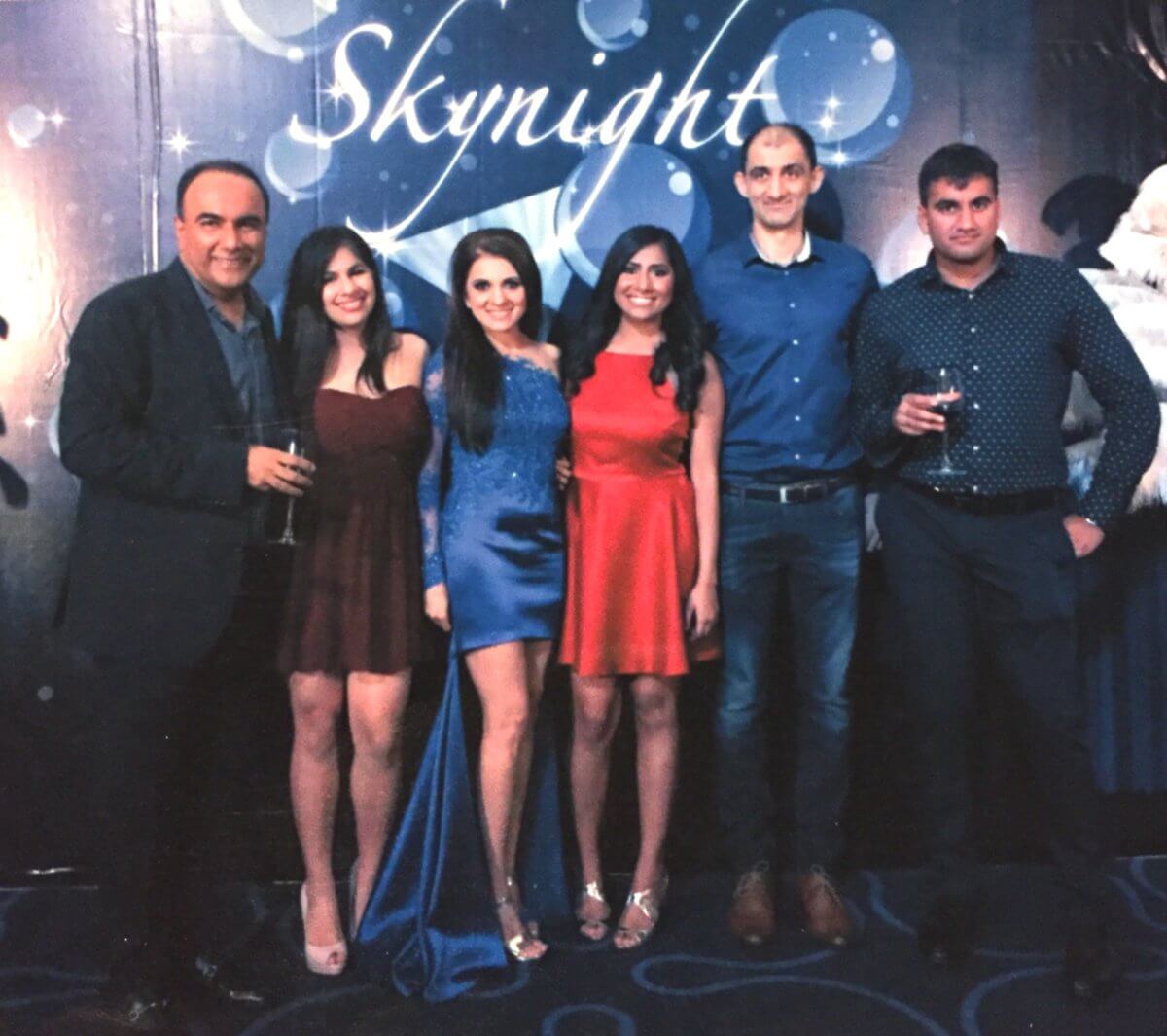
Cora Sukhyanga (Philippines)
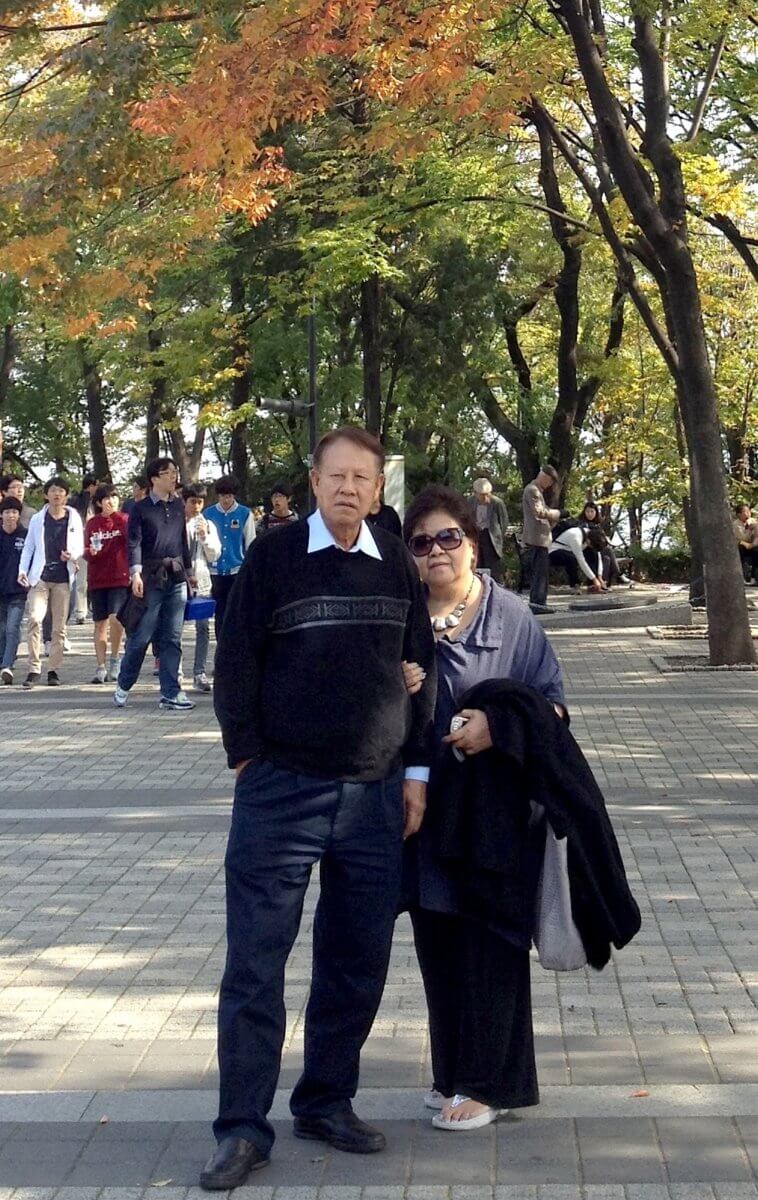
Cora and her Thai husband, Rumpai Sukhyanga celebrated their 50th wedding anniversary last year. She recalled her country; “Life was good in the Philippines during the 70s. Young Filipinos enjoyed a US influenced culture of music and dance, fast food, discotheques, gated communities and high rise condominiums. My parents were both teaching at the university where I studied architecture and Rumpai, five years my senior, studied mechanical engineering. My mother relives her days at Harvard Radcliffe, by inviting foreign students for Christmas Eve dinners at home. This was how I met Rumpai for the first time.
Tall, outgoing and fun loving, Rumpai was the son my parents never had. My three sisters and I were drawn to his gentlemanly ways, and he eventually became part of our family gatherings, and our unofficial chaperone.”
She candidly shared, “Compared to the progressive and modern city that was Manila then, I found Bangkok flat, dusty and rather old fashioned, yet at the same time, exotic and charming with tree lined avenues, narrow sois and khlongs, temple spires, and wooden houses – a far cry from the bustling cosmopolitan city it has become today. But dealing with the culture shock of a non-English speaking Buddhist Kingdom was frustrating to say the least.
Cora is grateful to the support of her husband and English speaking inlaws, “I passed the hurdles of the first two years. I was able to speak vernacular Thai in one year, and I got to laugh with the people who found my accent funny. Coming from a family of architects, I was disappointed that I could not practice architecture here due to the stringent language requirements at the time. Being bilingual gave me an advantage in my career choices. I would work in advertising, public relations and media publishing, as magazine and lifestyle writer and editor.”
“For the past 50 years, my husband and I have been equal partners and supportive of each other. He encouraged and took pride in my creative passion. Despite a busy schedule presiding over a multinational company, he was a role model father to our two daughters, and my soulmate in sickness and in health, for richer or poorer. Thailand has become my home and I wouldn’t have it any other way.”
Cora’s advice and tips to newcomers, “Married life in a foreign country can be challenging even to the most knowledgeable newcomer. You just have to recognise the opportunities available and be committed to making your marriage work. Learn to speak, possibly write, the Thai language. This will keep you in sync with the Thai people at home and at work. You will never feel like an outsider. Lastly, be sincere and genuinely interested in people and everything that’s happening around you. It also helps to be adventurous and keep an open mind. A sense of humour could help you overcome daily challenges.”
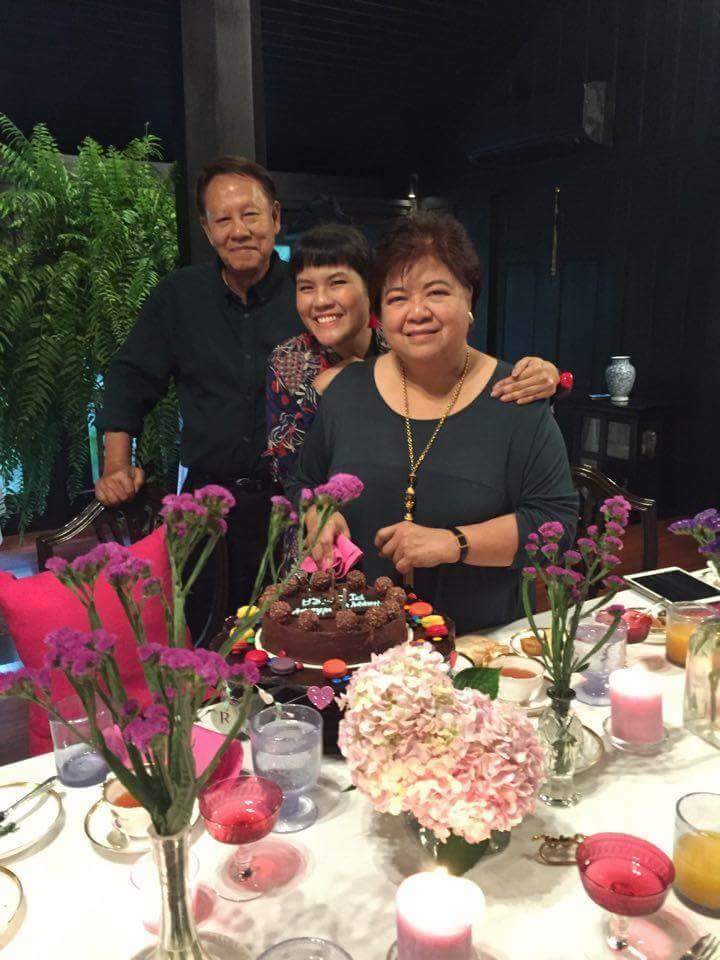
Esperança (Hope) Pilunthanakul (Portugal)
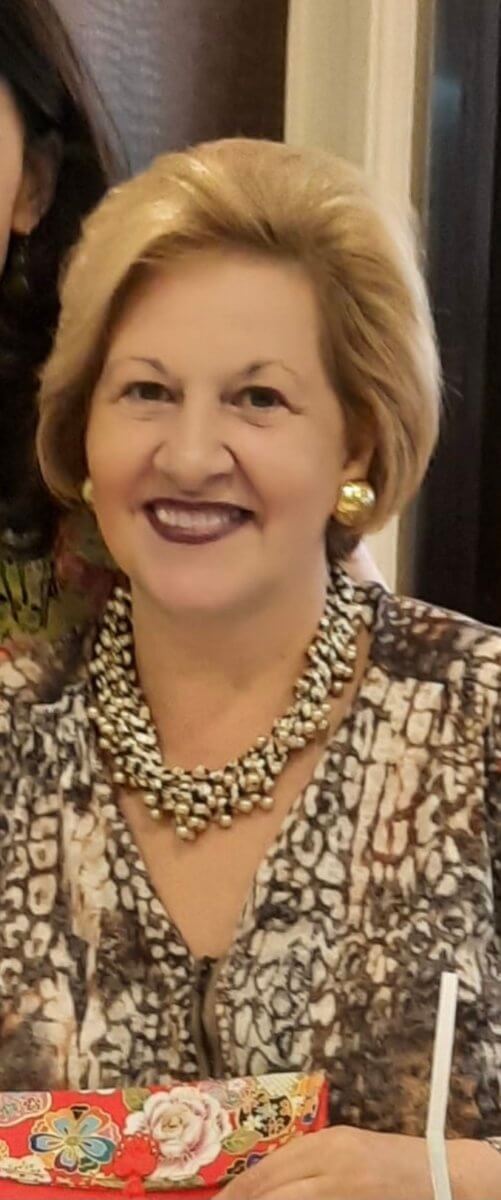
Hope met her Thai husband, Praphan Pilunthanakul in 1973 through friends while they were studying in London. The happy couple celebrated the 46th wedding anniversary in May last year. Her first impression on her new country was, “Thailand is not only one of the world’s most beautiful countries, but also well known for its fun loving, generous people who are sure to welcome you in as if you were a long lost friend. I became a member of a big and supportive family. However, at first, it was not easy because I could not speak the language and did not have any friends. After a while, I started to work, managed to slowly adapt and made a lot of friends. Then things became a lot easier for me to get along.”
She admitted further, “I did not experience any cultural shock. I was born in Portugal. Thai and Portuguese cultures are quite similar. Living in an extended family helped me feel at home. During the big floods in Bangkok in 1995, we had to use a boat to travel from where we lived in Sukhumvit Soi 41 to the main Sukhumvit Road. It was funny having to use the boat on the flooded road.” Hope felt very proud with her professional achievements in a well-known logistics company, Agility, as Marketing Manager for over 25 years. Socially, she has been involved with International Women’s Club (IWC). She is currently the Club Treasurer.
Hope suggested to any newly arrived brides from abroad, “It would be nice if she learns about Thai culture and follows four values framework: Fairness, Respect, Care and Honesty. I love Thailand and consider it my “home”. Other than my Portugese name, Esperança, I also have a Thai name, Malinee. We have a loving family with three sons (who are married), three granddaughters, one grandson, and one more granddaughter on her way.”
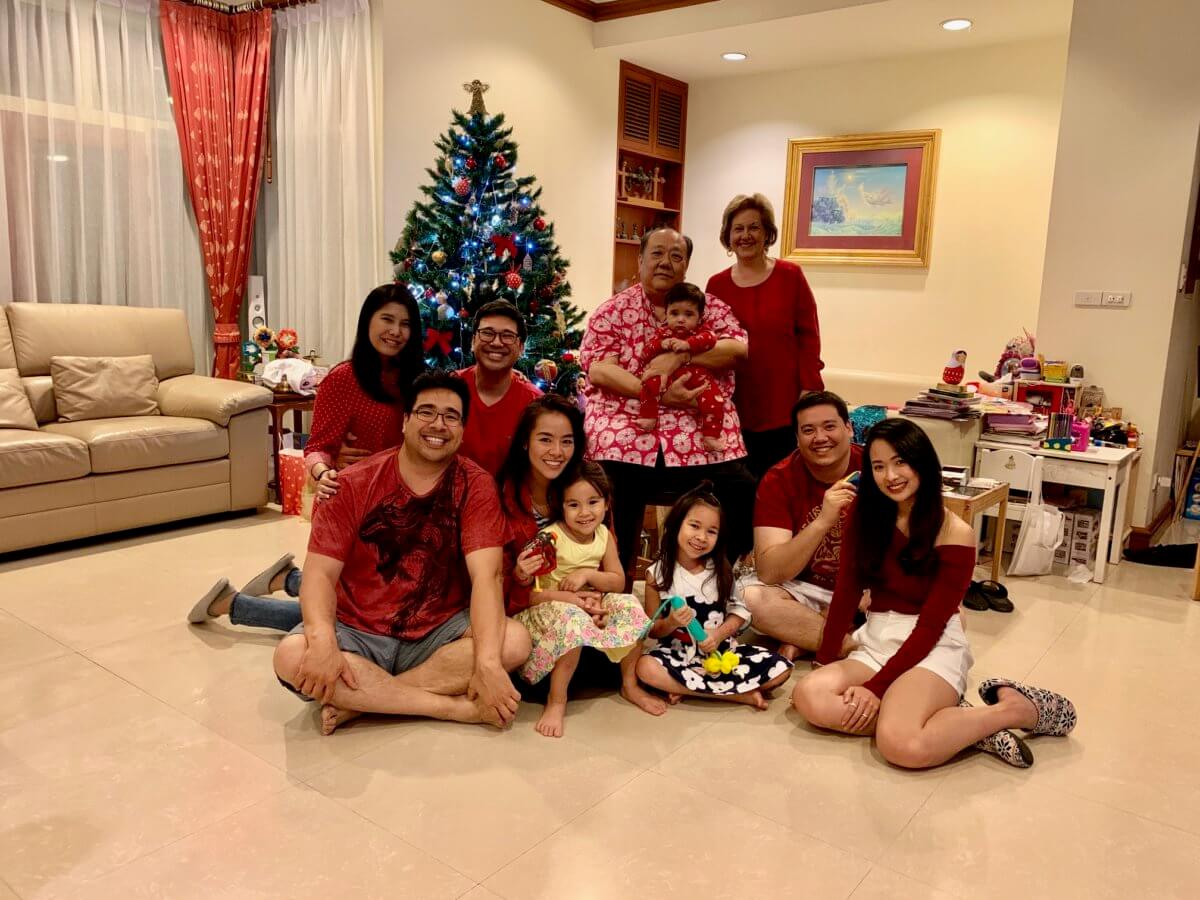
After reading these true life stories, I say to our readers, whether you are a newcomer to Thailand, newlywed or not. Thailand is a fascinating country if you have an open mind to explore and accept the cultural challenges.
I am proud to call this place my home!
